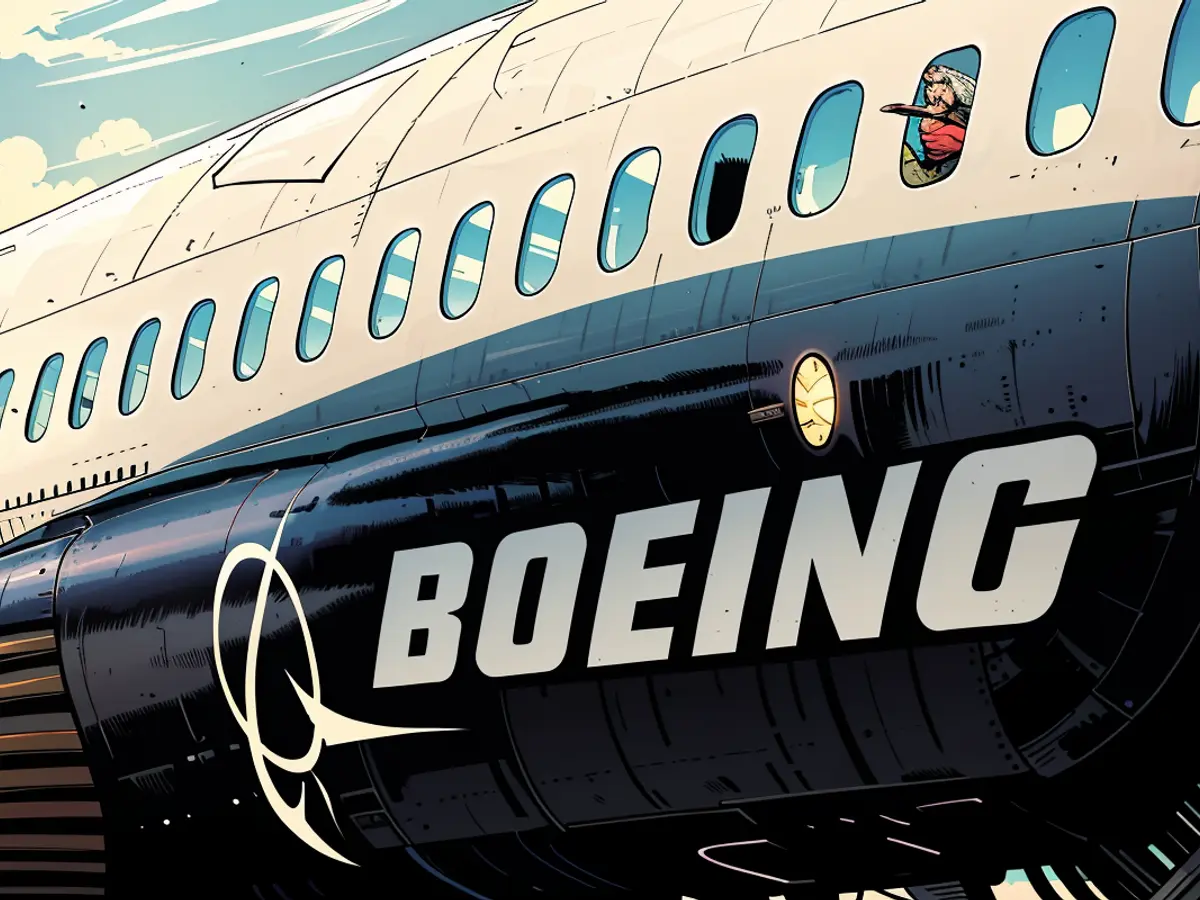Boeing employees reportedly prioritized speed over quality, claims the Federal Aviation Administration.
The yet-to-be-revealed findings from a six-week FAA audit, which has never been disclosed before, could add more burden to a company currently grappling with several issues. These include concerns about its aircraft's safety and a strike involving 33,000 union members, the first one in 16 years.
In January, a door plug detached from a 737 Max operated by Alaska Airlines shortly after takeoff. Luckily, there were no fatalities or serious injuries. However, this incident led to numerous investigations, one of which concluded that the plane had left the Boeing factory without the essential bolts needed to keep the door plug in place.
On Wednesday, the Senate Permanent Subcommittee on Investigations disclosed these findings. They are scheduled to hold a hearing, presumably featuring testimony from FAA Administrator Mike Whitaker.
The report, released as a memo to the subcommittee's members, stated, "The findings expose the magnitude of problematic production processes, including Boeing's struggles in adequately training and equipping manufacturing personnel, meticulously documenting and controlling nonconforming parts, and conducting thorough quality inspections."
Previously, Whitaker testified in June that the FAA adopted a laissez-faire approach towards regulating the aviation giant. However, the new report does not spare the FAA, shedding light on its role in Boeing's failures.
"These findings underscore an ongoing and relentless struggle by the FAA to ensure that Boeing adheres to the highest safety standards across its production facilities," it stated. "The newly released information raises doubts about the FAA's effectiveness in monitoring the company."
The report detailed safety lapses and shortcuts regularly practiced by Boeing employees. One of the most notable instances, as per the audit, involved a Boeing mechanic who used an unauthorized, uncalibrated, and unmarked measuring tool to check gaps between components.
The report also brought attention to "the absence of a process for controlling scrap articles," a concern raised by a whistleblower in an earlier CNN report this year.
During his testimony before the House Aviation Subcommittee on Tuesday, Whitaker revealed that the FAA has augmented its inspectors at Boeing's Renton, Washington 737 plant, requiring each new plane to undergo individual approval.
Whitaker asserted that Boeing has taken significant strides in addressing outstanding tasks that "transfer" to new airplanes as they move down the production line. However, he emphasized that changing Boeing's safety culture will be a prolonged endeavor, requiring years of consistent messaging and employees seeing safety as more important than production to effect change.
The revelations from the FAA audit could potentially escalate the business challenges the company is facing. In light of these findings, the FAA's role in ensuring Boeing adheres to safety standards becomes a subject of significant business scrutiny.








